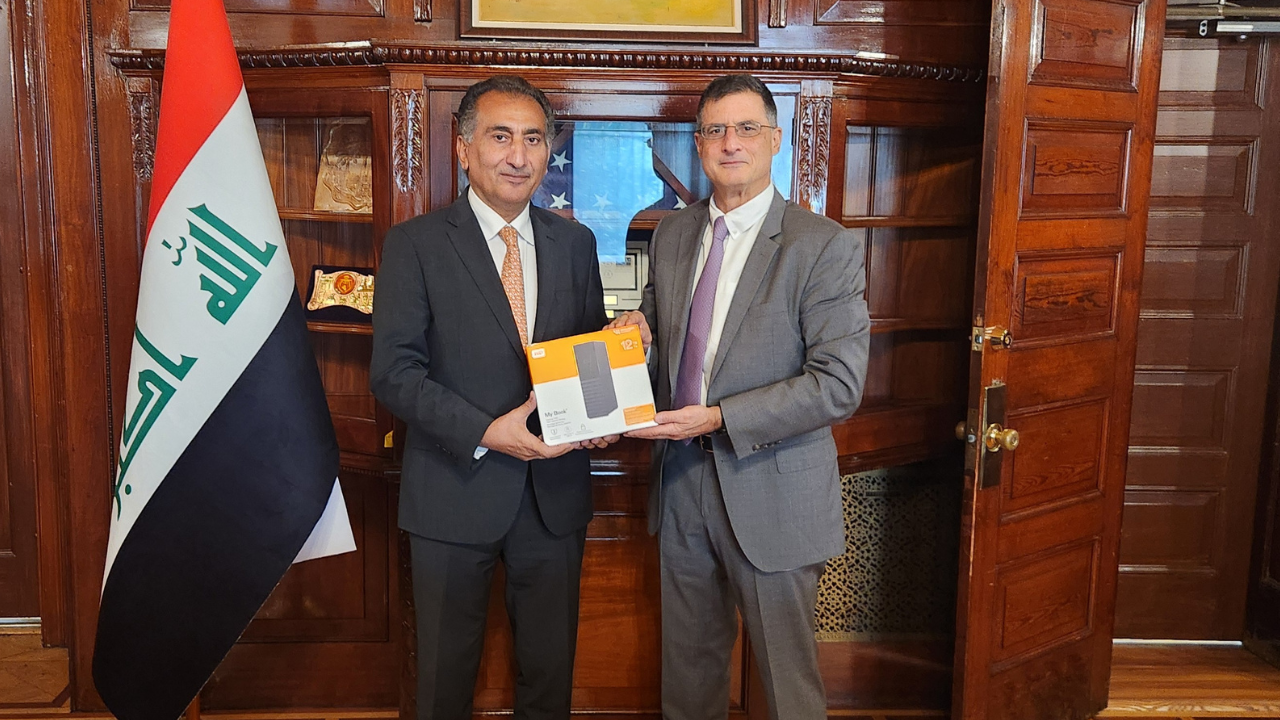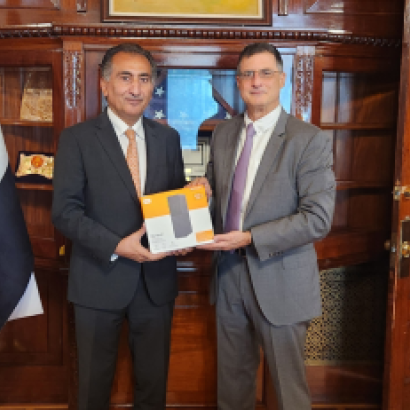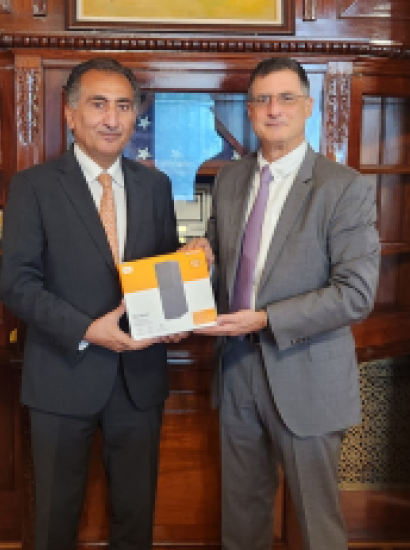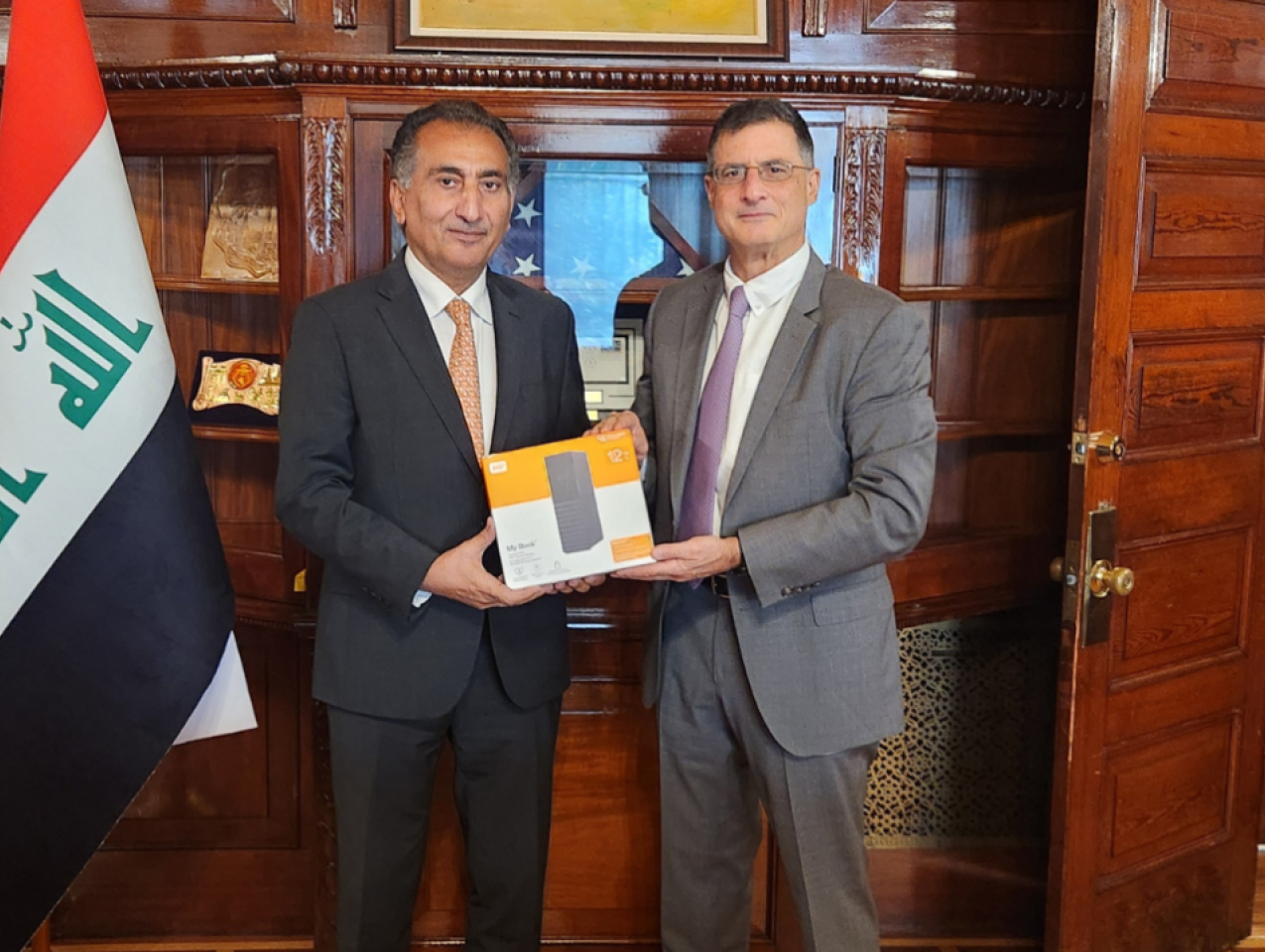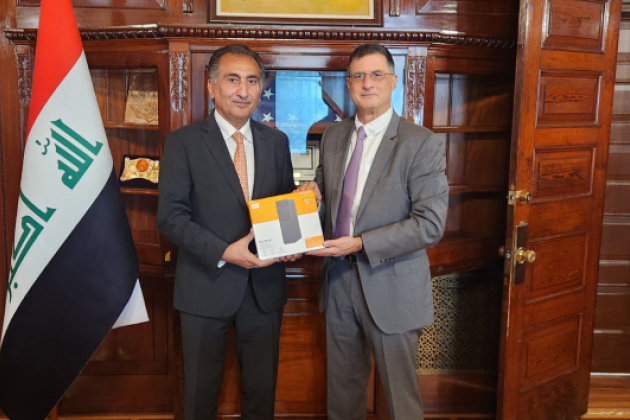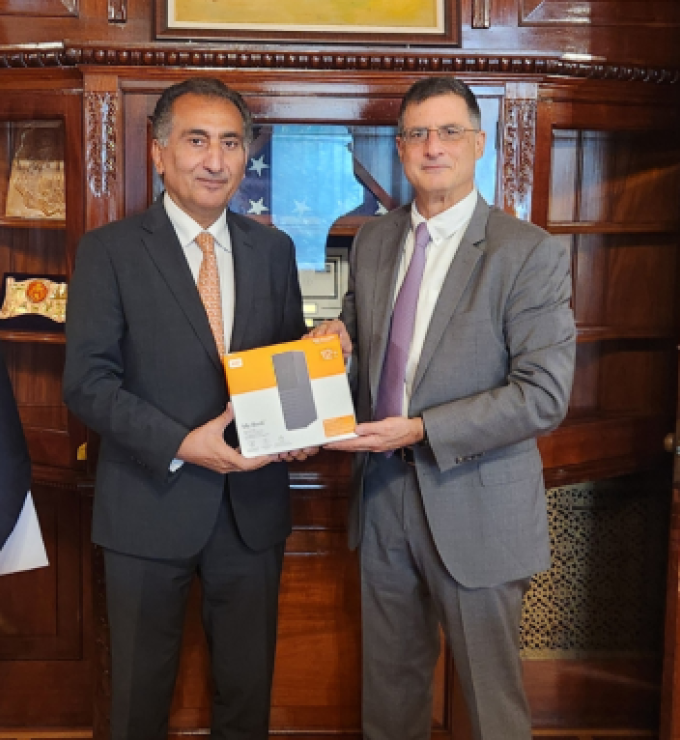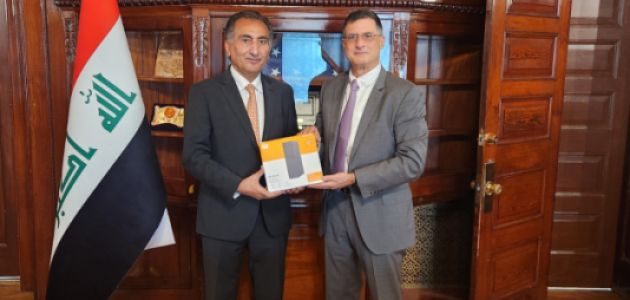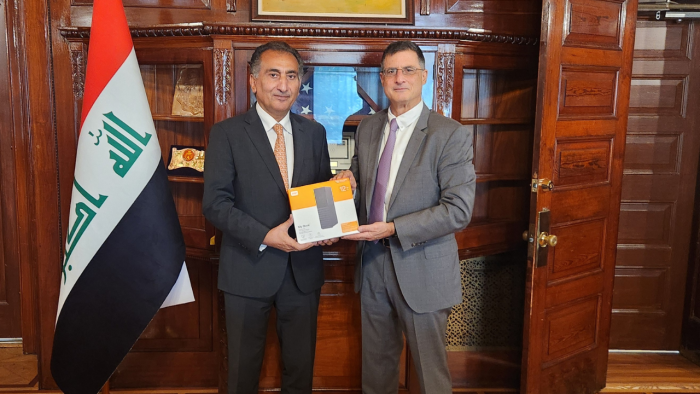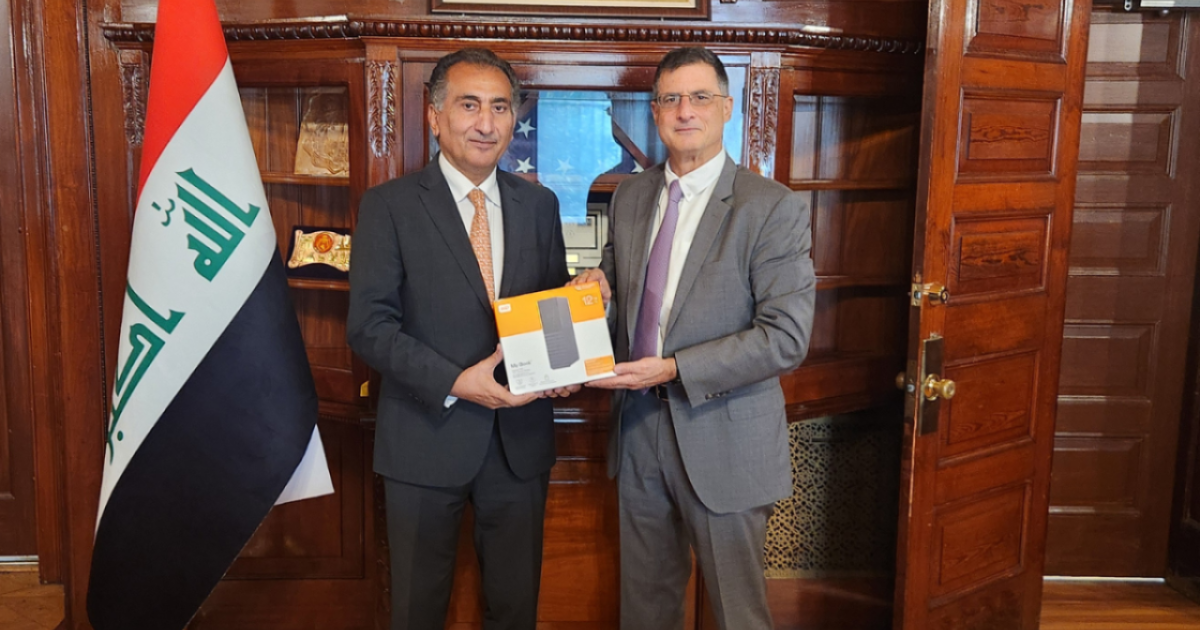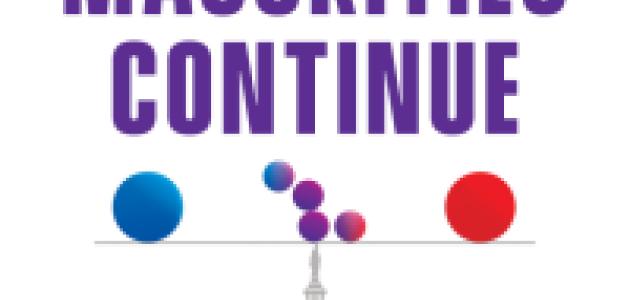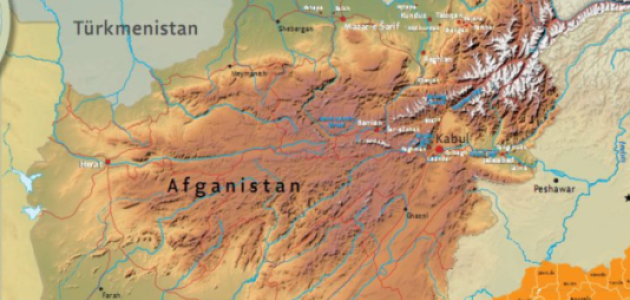Hoover Institution (Stanford, CA) — On October 15, 2025, Eric Wakin, Deputy Director of the Hoover Institution and the Everett and Jane Hauck Director of the Library & Archives, gave Ambassador H.E. Nazar Al Khirullah a copy of the Ba'th Arab Socialist Party of Iraq records, 1968-2003.
In summer 2020, the Hoover Institution Library & Archives helped to repatriate documents related to Saddam Hussein’s Ba‘th Party to Iraq after caring for them for more than a decade. The Ba‘th Party collection, containing more than four thousand boxes of physical material and nearly six million digital files, first arrived at Hoover in 2008 by request from the Iraq Memory Foundation (IMF), an organization dedicated to preserving and learning from Iraq’s recent history, with support from the Iraqi government.
A fully digitized copy remains accessible to researchers and the public in the Hoover reading rooms in Stanford, CA and Washington, D.C. under the existing access protocol.
Since the archive’s digitization and initial deposit at Hoover, the materials have been an invaluable resource for scholars of modern Iraq, authoritarian governance, political ideology and transitional justice. The party records have been used for more than 500 publications, including books, newspaper articles, journal articles, and dissertations. Over 200 researchers have accessed the collection since it was first accessible in the Hoover Library & Archives reading room, and documents from the collection have been featured in exhibitions and tours.
This once again reaffirms the Hoover Institution Library & Archives’ steadfast commitment to the protection and preservation of cultural heritage, exemplifying excellence in long-term stewardship and digital preservation. - Haidar Hadi, Curator for Middle East and North Africa Collections
This archival collection continues to inform the historical record of the Baʿth era. The Library & Archives remains committed to supporting those efforts through its research services, engagement, and digital collections program. Importantly, this development reinforces Hoover’s mission to share and secure ideas advancing freedom.




